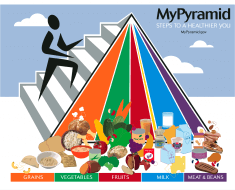Well-known Happiness Challenge
One of the great insights of modern neuroscience is plasticity well-known happiness challenge. Our brains change in response to experience and in response to training, our brains change wittingly or unwittingly. Most of the time, our brains are changing unwittingly. And the invitation in action for happiness is that actually, we can all take more responsibility for our own brains by cultivating healthy habits of mind we are learning that we can actually change brain circuits in ways that promote well-being.
They are four constituents of well-being that have been validated by modern empirical neuroscience and I’d like to very briefly just go through those four constituents. well-known happiness challenge The first has to do with resilience, which is the capacity to recover from adversity.
The more quickly we can recover from adversity, the more resilient we are, we can measure that in specific brain systems which turn out to be plastic, and with certain kinds of contemplative training, and specific mind training we can actually change those circuits in our brain to become more well-known happiness challenge resilient. The second component is the flip side of this, which is the capacity to savor positive emotion, to see the positive in the world, and to notice the smiles that his holiness (Dalai Lama) was talking about.
And it turns out that this too is subserved by a different circuit in the brain and certain kinds of practices of the sort that Matu will lead us through in just a few minutes can change these very circuits in our brain to sustain higher levels of well-being. The third component of well-being that’s been neuro-scientifically validated has to do with attention.

There is absolutely no doubt about it and this is something that we can learn. The last constituent, the fourth constituent of well-being that’s been neuroscientifically validated is best summarized by the single word generosity. Being kind to others.
Acting on behalf of others turns out to activate the very circuits in our brain which sustain positive emotion, and they activate those circuits in a way that can produce change that lasts more so than anything else that has been studied by neuroscientists, this is really something that produces a very direct change in these circuits in the brain. So these four constituents resilience, the capacity to sustain positive emotion or outlook, well-known happiness challenge as we’ve called it, attention, and generosity are all critical components and they all take advantage of engaging circuits in the brain which exhibit plasticity and can be changed through intentional training.
So the invitation, a well-known happiness challenge again, is that we can all take more responsibility for our own brains by engaging in certain simple mental hygiene which can change these circuits in ways that will enable us to be happier.






